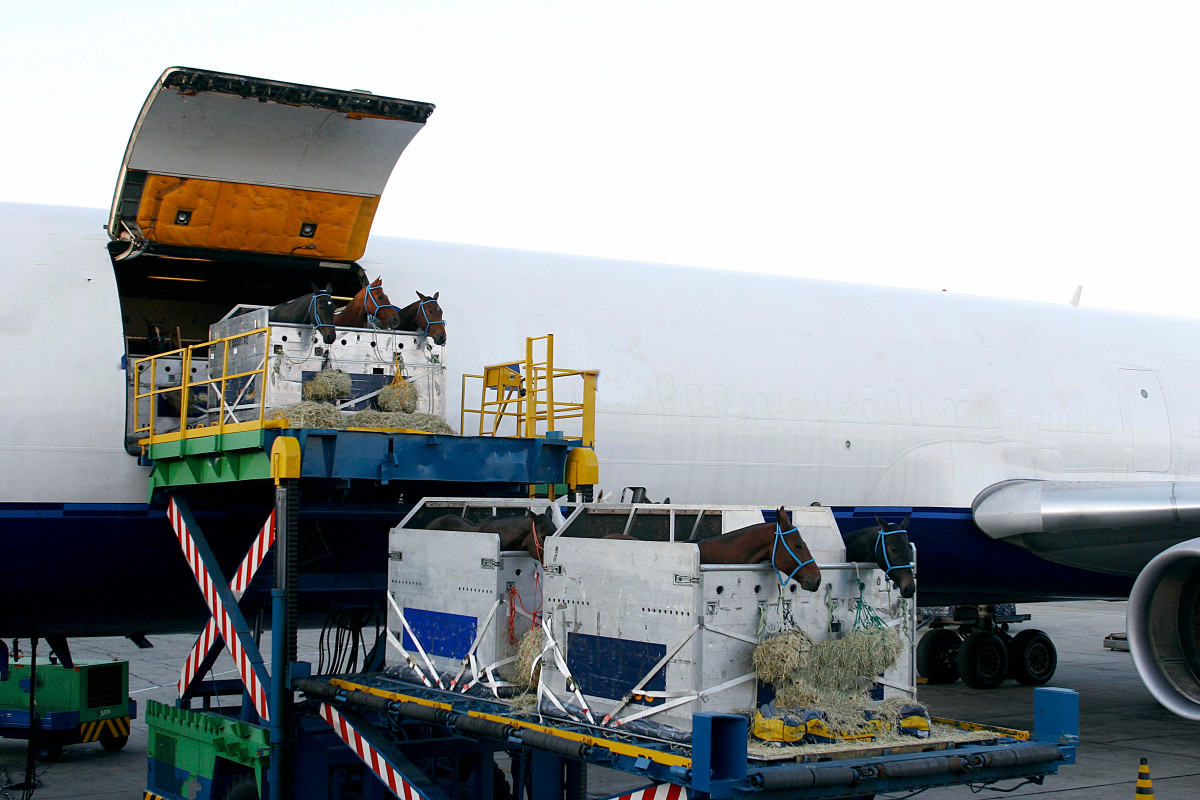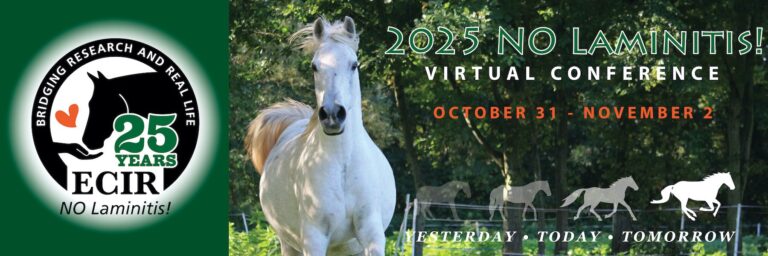
When the Bromont, Canada, venue that had been awarded the 2018 WEG withdrew from their hosting arrangement with FEI, Mark Bellissimo and Tryon Equestrian Partners received the USEF’s full support in making a bid to keep the games in North America.
Tryon International Equestrian Center was awarded the event, but that meant the group had less time than a normal WEG venue to prepare for the games. However, using experience from the Kentucky 2010 WEG and involving experts from around the world, the WEG Tryon 2018 looks to be one of the biggest and most intensely health-conscious international equine events held in the United States.
On the health and welfare side, there have been many individuals and organizations assisting in preparation for the event. Other experts will be on-site before and during the games to ensure the safety and health of not only international competitors, but U.S. horses.
David Paul Lunn, BVSc, MS, PhD, MRCVS, DACVIM, Dean, College of Veterinary Medicine, North Carolina State University (NCSU), said the Tryon International Equestrian center has had an enormous impact in North Carolina. “We started visiting the Center and looking for ways to engage even before WEG bid was made,” said Lunn. “We have a long-standing, very good relationship with Drs. Anne Baskett and Bill Hay (who are in charge of veterinary services at the WEG) and their Tryon Equine Hospital. So, we already had that involvement with the Tryon group and other people in Rutherford County who are now involved with the WEG.

“Something that people may not understand about this WEG bid is that the games was awarded very recently to Tryon, giving everyone a very short time to prepare for this event compared to the event in Kentucky and WEGs in other places,” said Lunn. “All the groups involved went from having no anticipated engagement with WEG to having a pretty short timeline to organize a very large event.”
He said the Tryon organization was very bold about pursuing this event, and that it took on an enormous challenge.
“A number of organizations are vital to making this work, including the USDA, North Carolina Department of Agriculture and Consumer Services, the North Carolina State Veterinarian’s office, and the North Carolina State University College of Veterinary Medicine,” said Lunn. “A lot of people rallied around Tryon.”
Lunn said Kentucky had about a six-year lead time in making plans for the 2010 event. “And I must say that for us in North Carolina, we benefitted enormously from Kentucky’s experience and what the veterinarians in Kentucky were able to share with us. That gave us a huge leg up.”
Biosecurity is Primary
Lunn said that biosecurity is a big part of putting on an international event such as WEG.
“We brought in biosecurity leaders with strong prior experience,” he said. “One of my friends and colleagues, Professor Josh Slater of the Royal Veterinary College in London, played a critical role for both the Hong Kong and London Olympics, and also consulted for the last WEG. Josh’s experience was very helpful, he has already visited the site twice and done a huge amount of work with the organizers to develop the lengthy and complex biosecurity protocol for WEG. Josh is a critical player who is reporting to Dr. Anne Baskett and is helping implement those protocols.” (Editor’s note: Anne Baskett, DVM, DACVS, and her husband, Bill Hay, DVM, DACVS, are overseeing the treating veterinarians at the FEI World Equestrian Games Tryon 2018.)
Lunn emphasized that putting on an international equine event such as WEG is “can be even more demanding and complicated than an Olympics. The Olympics is actually a smaller event, with fewer horses and events than you see in the WEG.”
There will be about 550 horses flying in for WEG, said Lunn. “It’s one of the largest ever international movements of competition horses for one event,” he said.
Lunn has frequently visited the WEG site, together with the other experts that are consulting with the Tryon International Equestrian Center. “These trips have primarily focused on biosecurity,” he said. “We are also there to provide any help we can to the vet services managers as they develop plans for the hospital and emergency coverage on site. NC State will provide some lead veterinarians to be part of the team for emergency care and biosecurity.
“The WEG will also provide some great opportunities for a veterianry student volunteer team,” Lunn explained. “AAEP is bringing students form every vet school in the US and Canada, totaling about 35 students. They will get the opportunity to work with team vets and in support of vet services. Dr. Tracy Turner and Dr. Julie Wilson are leading that effort for AAEP at the WEG.”
Lunn said that as an institution, NC State’s College of Veterinary Medicine is there to provide any support they can to the veterinary services team, led by Baskett and Hay. In addition to work on the biosecurity plan, their veterinarians will be there to help provide emergency and hospital services throughout the event, and extra help on competition days. Many other veterinary volunteers from around the country and the world will play a vital role in making this event work.

There will be a hospital on the grounds at WEG, but if a horse needs more extensive care it will travel to the nearby Tryon Equine Hospital. If even more facilities are needed, then the hospitals at NC State and the University of Georgia are standing ready.
Protection
One of unique things about WEG is that horses come into this country under special waivers for health conditions that could normally prevent their entry into the United States. “Horses will come and compete that are infected with equine piroplasmosis,” said Lunn. “That’s a very unusual circumstance, but it has been done safely before for major events like the WEG. The whole plan is to work to limit any risk to the US horse population, and this is strictly overseen by the USDA.”
He said a lot of what veterinarians on the ground have been focused on is working with the USDA to ensure the health of the horses in the United States. The North Carolina and South Carolina Departments of Agriculture and state veterinarians have been heavily involved in planning to ensure all the proper protective steps are taken to protect native horses.
Click here for complete health and veterinary aspects of #Tryon2018. Coverage of the FEI World Equestrian Games™ Tryon 2018 is brought to you by KindredBio.


![[Aggregator] Downloaded image for imported item #18375](https://s3.amazonaws.com/wp-s3-equimanagement.com/wp-content/uploads/2025/09/30140031/EDCC-Unbranded-26-scaled-1-768x512.jpeg)
![[Aggregator] Downloaded image for imported item #18387](https://s3.amazonaws.com/wp-s3-equimanagement.com/wp-content/uploads/2025/09/30141404/EDCC-Unbranded-19-scaled-1-768x512.jpeg)
